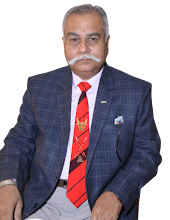By Shri Priyadarshi Dutta on August 7, 2013
The butchering of five Indian soldiers in the Poonch Sector of Jammu & Kashmir by Pakistani raiders has shocked the nation. It has revived the memories of decapitation of two Indian soldiers at Mendher Sector earlier this year. What is sinister is that the latest raid is apparently a joint operation of Pakistani Army regulars and Jihadi outfits like Lashkar-e-Tayebba, Hizbul Mujahideen and Jaish-e-Mohammed.
India as usual lodged protest with Pakistan, something it has been doing for long. India is no stranger to such raids by Pakistani forces and its proxies. It had to reckon with such sporadic cross-border enterprises throughout the Nehruvian era. Nehru, in his additional capacity of Minister of External Affairs, was often drawn into the issue inside Parliament. In those days, the Minister of External Affairs, or his deputy, rather than the Defence Minister replied Parliament questions on this subject. A survey of Rajya Sabha Q&A from 1950s and early 1960s brings out the callous approach of the Nehruvian establishment toward cross-border raid.
Here are some snippets-
Raids in Malda, West Bengal (1957): On August 12, 1957 Nawab Singh Chauhan raised the issue of Pakistan’s raids in Malda district of West Bengal on May 20-21, 1957. Prior to 1971, Pakistan encompassed both western and eastern (now Bangladesh) flanks. Nehru coolly informed that on May 20, 1957 five Pakistani nationals, aided by 11 armed Pakistani policemen had trespassed into Indian territory in Mouza Ghurnimadia, JL No142, Police Station English Bazar, district Malda and lifted 48 heads of cattle to Pakistan, after threatening the cowherds. On May 21, about 35 armed Pakistani nationals trespassed into Indian territory and attempted to kidnap an Indian national who was ploughing a land in Mouza Fatehpur, Police Station Kaliachak, district Malda. Faling in their attempt, they took away a pair of bullocks. The Government of West Bengal had then lodged a protest with East Pakistan and urged them to return the cattle to their owners and to punish the offender. The Government of India apparently did not bother even to protest!
Raids in Ganganagar, Rajasthan (1961): On November 27, 1961, JC Chatterji raised the issue of armed raid by Pakistanis on Dandera village, District Ganganagar, Rajasthan. Lakshmi Menon, Deputy External Affairs Minister, informed that on September 2, 1961 some eight raiders from Pakistan drove away eight camels and also looted about four tolas of gold and 230 tolas of silver from silver from inhabitants of two villages. The West Pakistan Rangers reported they had recovered the stolen goods. But the meeting scheduled for November 8, 1961 for restoration of said property could not be held. Nehru was not willing to read much. Such incidents, to Nehru, were merely criminal activities best kept out of bilateral relationship.
5 Jawans killed at LoC: Raid in Bikaner, Rajasthan (1955): On March 1, 1955 SN Dwivedy raised the issue on a gang from Pakistan entering Baggu near Bikaner and killing three Indian police constables on January 4, 1955. Anil K Chanda, Deputy External Affairs Minister, said a protest had been lodged with Pakistan. In a diplomatic lingo, the Minister said, “In addition to the protest lodged with the Government of Pakistan in regard to the incident, it has been suggested to the Government that the question of adopting some effective machinery for prompt disposal of complaints relating to such incidents as well as the establishment of peaceful and friendly regime on the border in co-operation between the police and other authorities should be discussed between the representatives of two countries! It was a near perfect example of Nehruvian gibberish by his deputy.
Raids in J&K (1954): On September 22, 1954 , Anil K Chanda informed the House that there were 76 border raids by Pakistan in the J&K border in 1953. There were 71 raids and five violations of the ceasefire line. During the period January to July, 1954, there were 50 border raids, 46 raids and four violations of the ceasefire line. The Deputy Minister said such incidents could not be eliminated altogether.
Pakistan troops fire on Army post in Poonch Sector, 5 jawans killed: Raids in Cooch Behar, West Bengal (1961): On April 20, 1961, Niranjan Singh raised the issue Pakistani raid in a village of Cooch Behar district in West Bengal. Deputy External Affairs Minister, Lakshmi Menon replied some Pakistani nationals armed with deadly weapons raided the house of certain Mahesh Chandra Barman in the border village of Himkumari on the night of March 14-15, 1961 and killed him. The information with the Government was that they were invited to commit the crime by some Indian nationals who had a land dispute with the victim. The Deputy Minister felt it was purely a case of murder with no political implication.
East Pakistan Rifles firing in Khasi and Jaintia Hills, Assam (1963): On December 21, 1963, Nehru gave a statement on East Pakistan Rifles firing incident in Lobhacherra sector in United Khasi and Jaintia Hills in Assam. The firing had lasted from December 9 to December 19 when a ceasefire took place. The East Pakistan Rifles had entrenched themselves on a thickly forested tilla 200 to 300 yards within Indian territory. Indian security forces also returned fire. Though there was no casualty on Indian side, two soldiers went missing only to return later. The Assam Government strongly protested the incident.
Army Chief to review security situation in Poonch today
Nehru never talked of befitting response or strong reply to such acts of Pakistani raid. Most of these raids were directed upon civilians. Obviously, the State was failing in its duty to protect its citizens against external incursions. But Nehru could not care less. He institutionalised the tepid response towards these aggressions. The legacy refuses to leave his party, leading partner in ruling coalition today. No wonder India would merely protest against killing of five Army soldiers. Pakistan meanwhile will plot about the next ‘action’



No comments:
Post a Comment